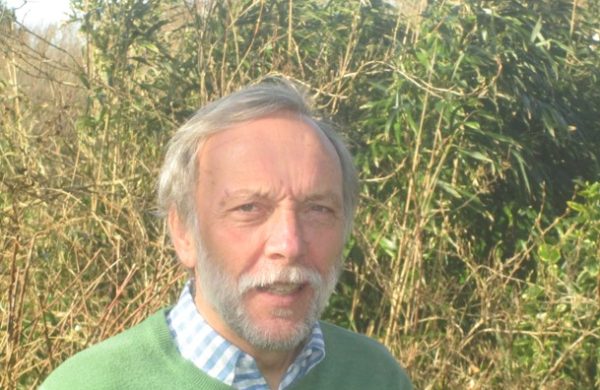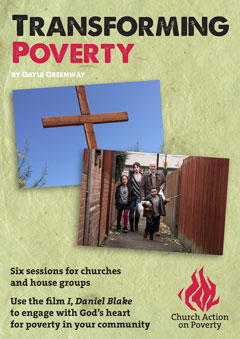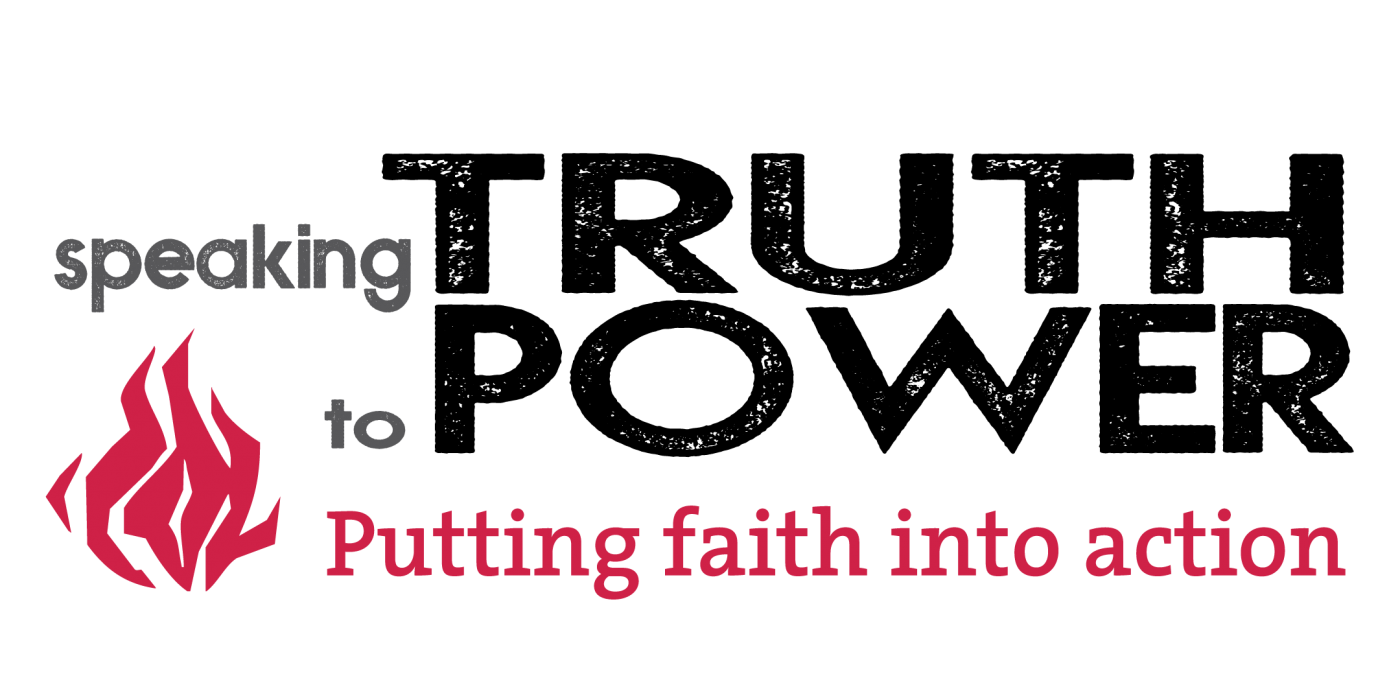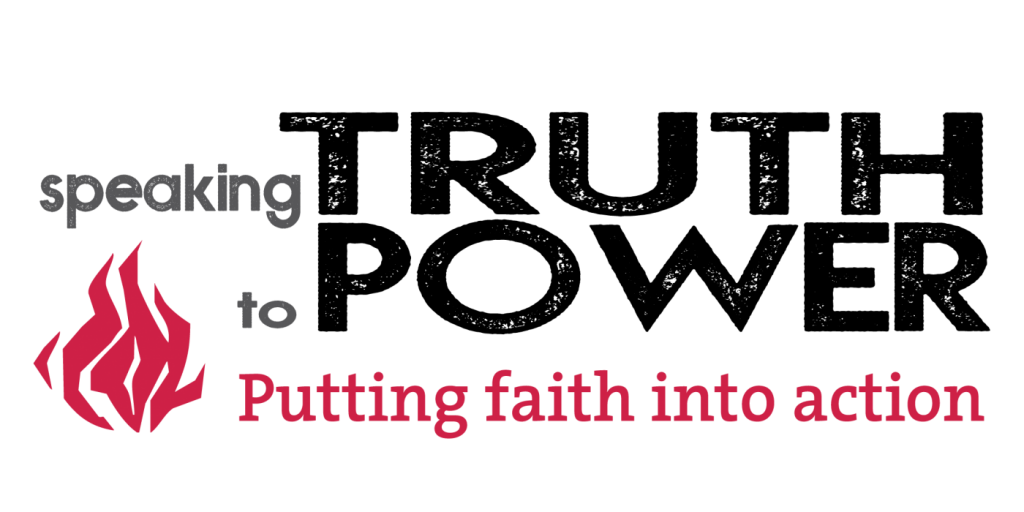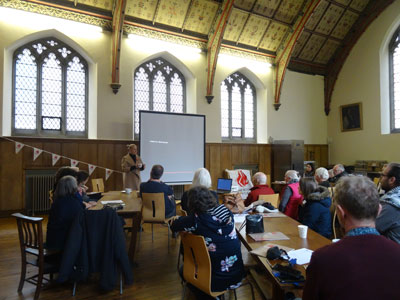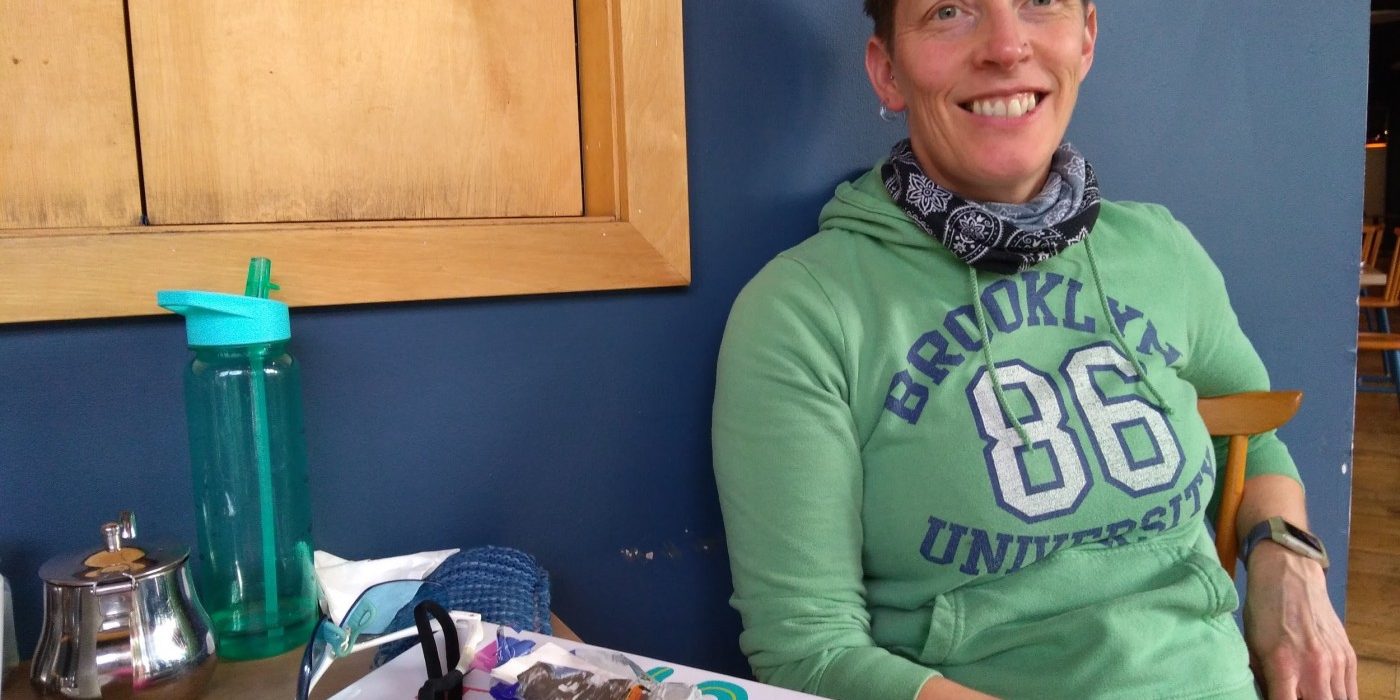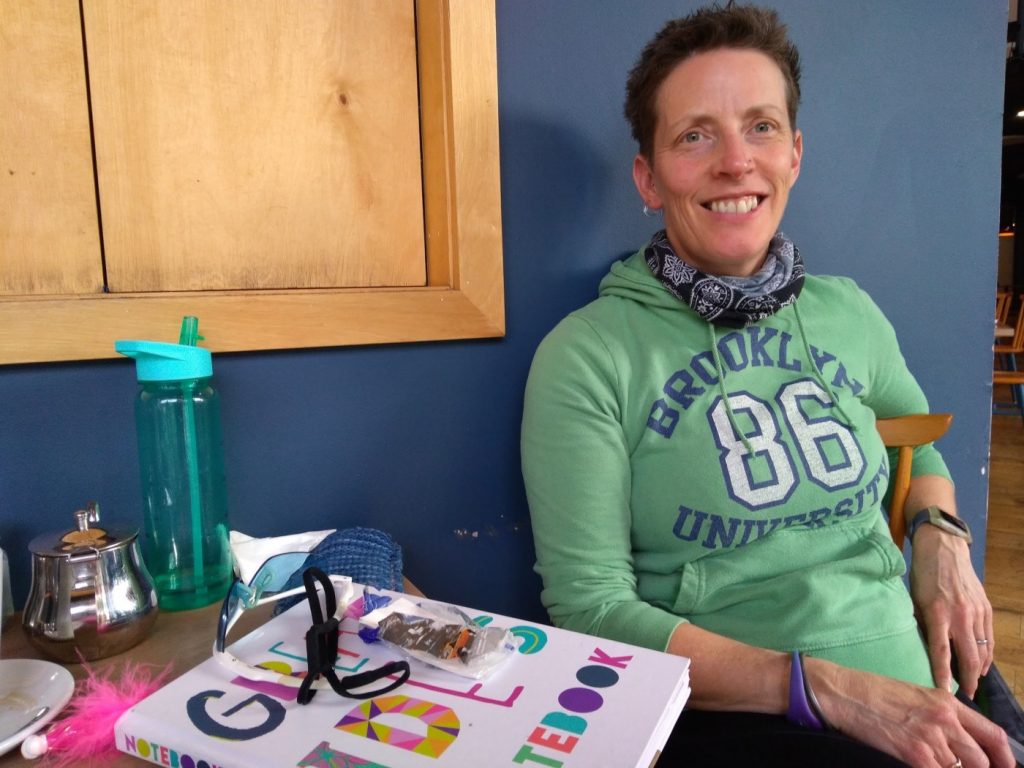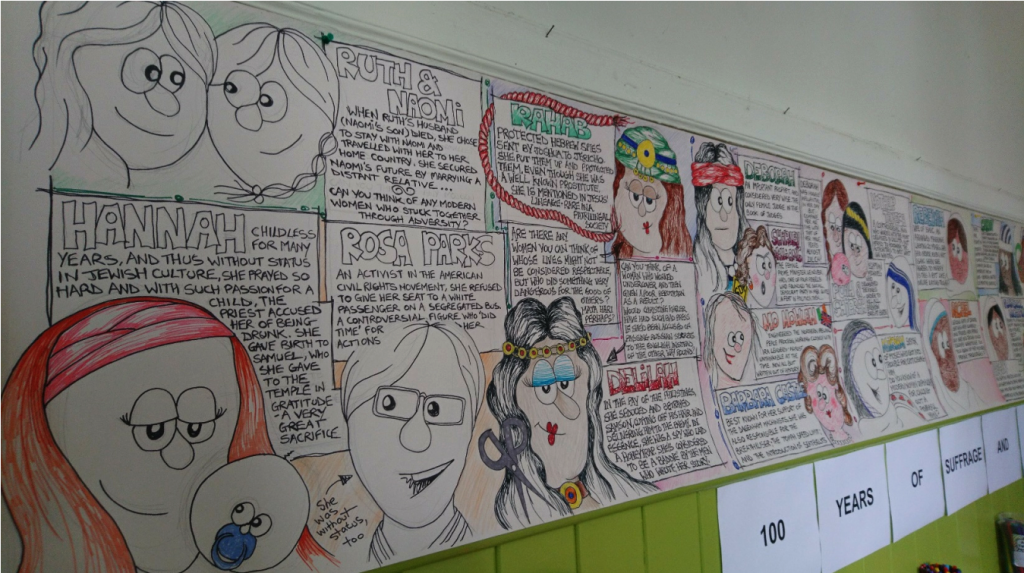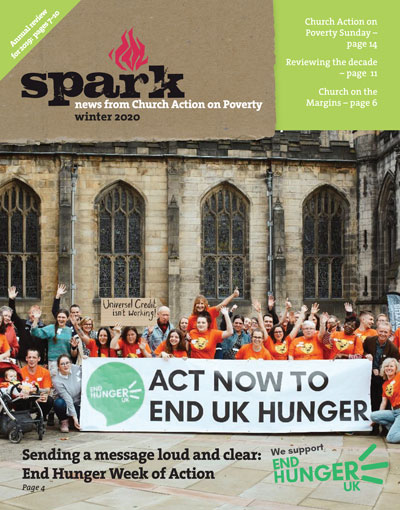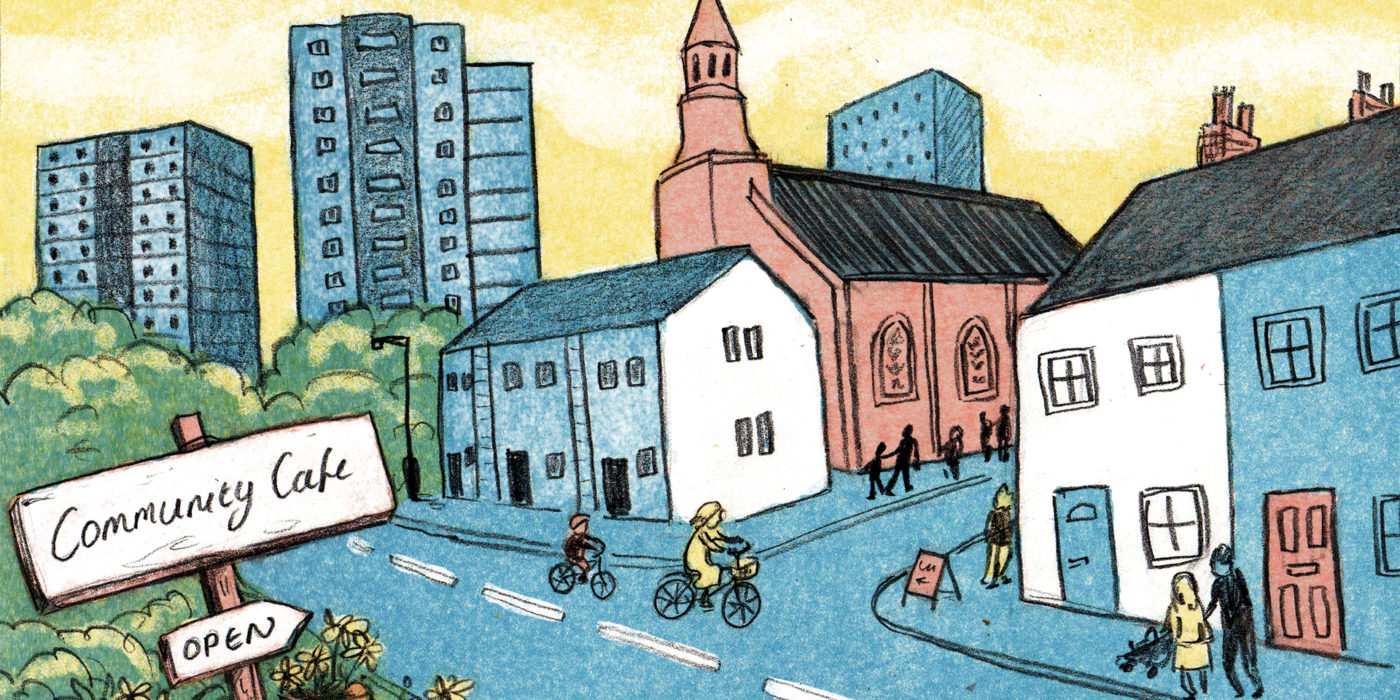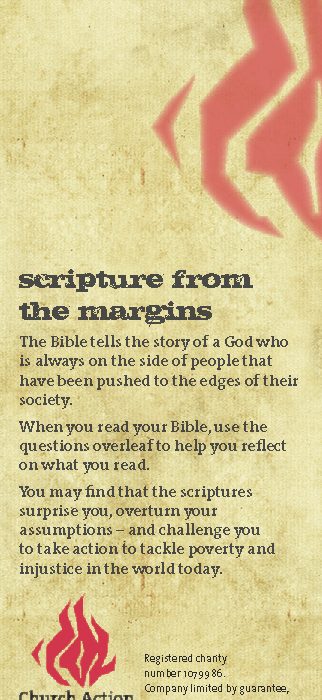Our North East local group report on their event for Church Action on Poverty Sunday 2020.
The North East event for Church Action on Poverty Sunday, 23 February 2020, took place in St Peter’s RC Church in Gateshead. It drew together 270 people, representing local churches and communities along with charities such as the Bensham Food Coop, Joe’s Place and Oasis Community Housing. Ian Mearns, MP for Gateshead, and members of Gateshead Council attended.
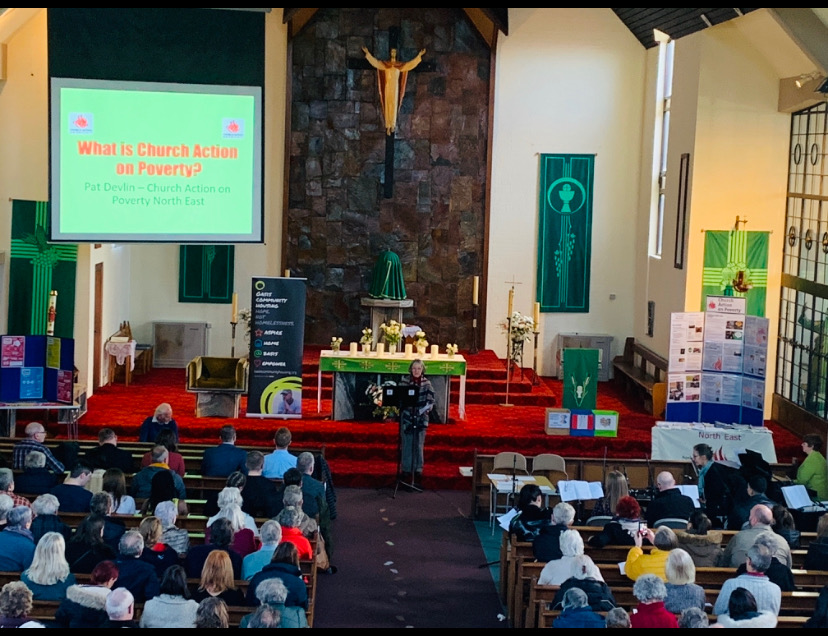
The theme ‘Speaking Truth to Power’ was addressed from the start. Revd Hugh Sperring from the Wesley Memorial Methodist Church inspired the gathering with the prayer that God would bless us with “enough foolishness to believe that we can make a difference in the world” and “do what others claim cannot be done”. Pat Devlin from the North East group explained the aims and activities of Church Action on Poverty, and Lucy Zwolinska from the Gateshead Poverty Truth Commission spoke about the work of the Commission and shared through video some real-life stories. Hannah Davison from St Peter’s Church concluded this first part of the programme by reading the poem ‘Refugees’ by Brian Bilston which cleverly invited us to turn our thoughts upside down and think about things differently!
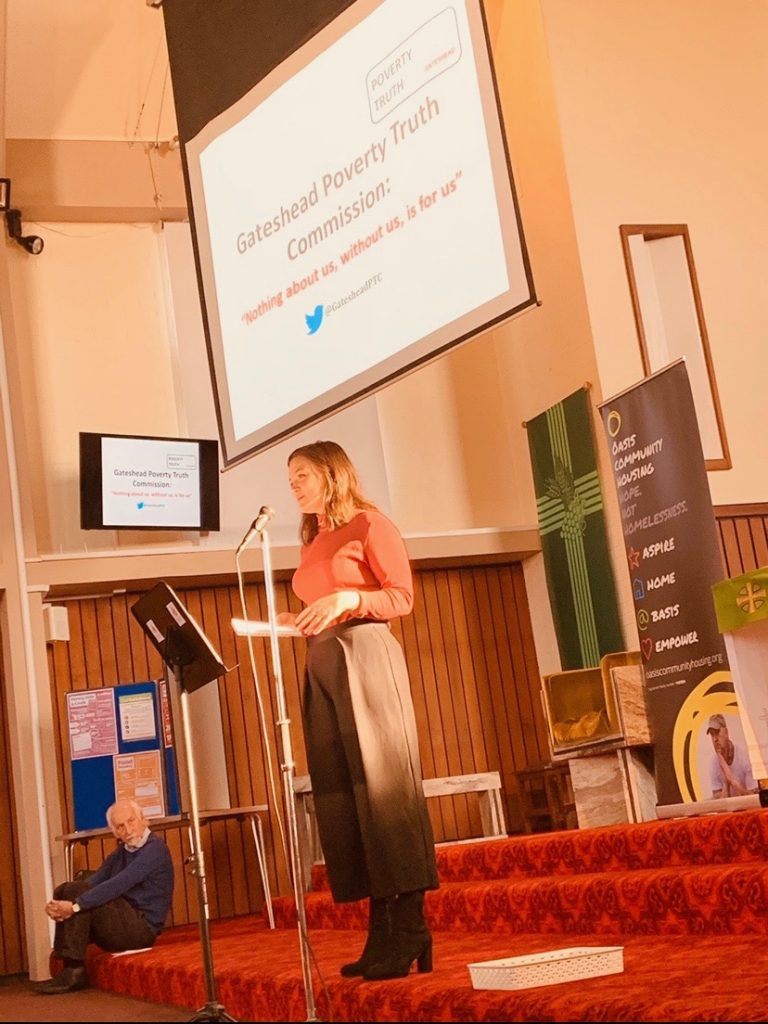
A range of speakers from the local area highlighted the real crisis of poverty that is all around us and, by using their authentic voices, called those listening to action. Two local initiatives were shared by those engaged in running them: Joe’s Place is a drop-in community café for homeless people and for those who are struggling in a variety of ways, and the Bensham Food Coop provides food, support and friendship for people seeking sanctuary, refugees and local people living in poverty. In each case someone with experience of poverty shared their story and the truth of their situation. Oasis Community Housing shared the reality of homelessness in Gateshead and how they are helping the situation. They have recently been able to open a 24-hour facility for those living on the streets.

A short liturgy led by young people gave a much needed opportunity to reflect and to bring the light of God’s power into our situation so that all of us might raise our voices to ‘speak truth’. The final part of the afternoon was to invite those who represented ‘power’ and ‘influence’ to make a response to what they had heard: Ian Mearns MP, Ian Stevenson from Gateshead Council and Fr Adrian Tuckwell, Vicar for Caritas and representing Bishop Robert Byrne of the Diocese of Hexham and Newcastle.
It was very appropriate that the event took place in Gateshead as the launch of Gateshead Poverty Truth Commission was planned for 5 March. Church Action on Poverty North East had hosted a meeting focusing on poverty in Gateshead over a year earlier, and this had turned out to be a huge catalyst in the formation of an Outreach Group in two Gateshead churches: Corpus Christi and St Peter’s. The group was delighted to host this year’s Church Action on Poverty Sunday, seeing it as an opportunity to raise awareness and to establish connections in order to bring people together to work for change.
Lorem ipsum dolor sit siyt adipsic
Lorem ipsum dolor sit amet consec tetur adipis ing elit sed do eius mod tempor incid idunt ut labore et dolore magna aliqua. Ut enim ad minim veniam quis nostrud exercita tion ulla laboris nisi ut aliquip ex ea commodo conse quat. Duis aute irure dolor in repreh enderit in volup tate velit esse cillum dolore eu fugiat nulla pariatur. Excepteur sint occa ecat cupida tat non proident, sunt in culpa qui officia deserunt mollit anim id est laborum.
Lorem ipsum dolor sit amet consec tetur adipis ing elit sed do eius mod tempor incid idunt ut labore et dolore magna aliqua. Ut enim ad minim veniam quis nostrud exercita tion ulla laboris nisi ut aliquip ex ea commodo conse quat. Duis aute irure dolor in repreh enderit in volup tate velit esse cillum dolore eu fugiat nulla pariatur. Excepteur sint occa ecat cupida tat non proident, sunt in culpa qui officia deserunt mollit anim id est laborum.

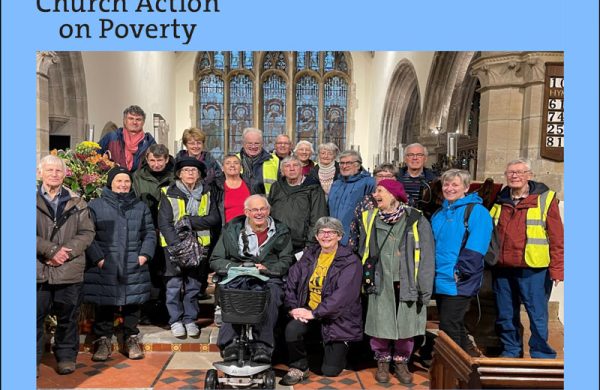
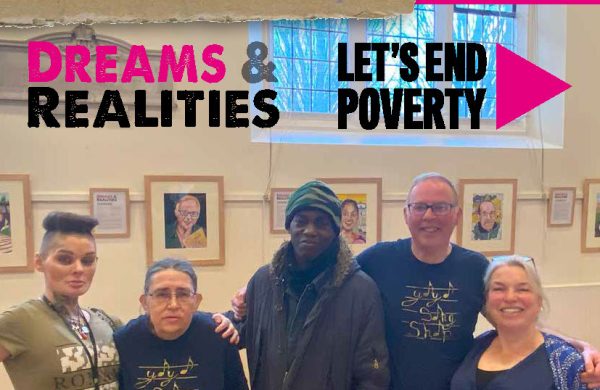



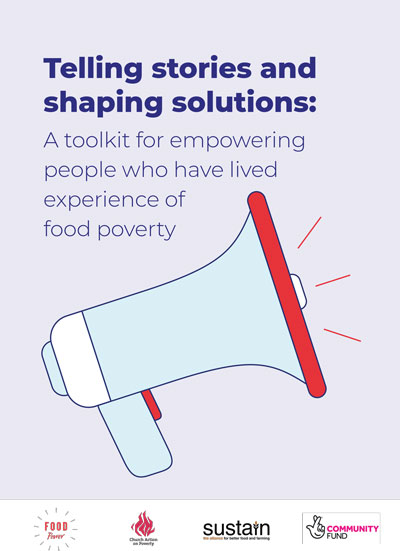
 “I got involved because I’ve lived it and I wanted to speak out for those who can’t. The toolkit is there to make sure those working with people who might be
“I got involved because I’ve lived it and I wanted to speak out for those who can’t. The toolkit is there to make sure those working with people who might be
